Contronyms in English
(Also Called Contranyms or Auto-antonyms)
There are many interesting words in English. A contronym is any word with multiple meanings in which one meaning is the reverse of another meaning. A contronym is its own antonym. How about that?
For example, the word dust can mean to remove dust OR its opposite => to cover in dust!
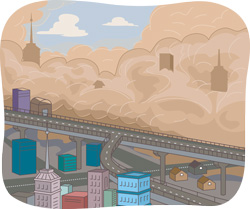
That's why contranyms are also called auto-antonyms (auto = of yourself + antonyms = a word that means the opposite of another word).
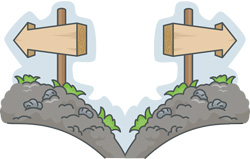
To help you understand contronyms, let’s
first review some other interesting types
of words in English.
Click Here for Step-by-Step Rules, Stories and Exercises to Practice All English Tenses
Synonyms and Antonyms
A synonym
is a word that has the same meaning as another word.
Example:
happy and cheerful

There are many synonyms in English!
An antonym
is a word that has the opposite meaning of another word.
Example:
happy and sad
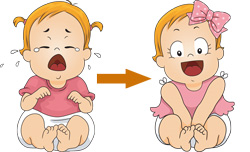
Not all English words have antonyms.
Homophones and Homographs
Homophones
are two or more words that have the same sound, but different
meanings.Example: too, two, to
- Mrs. Jones is Cindy's teacher. She is my teacher too.
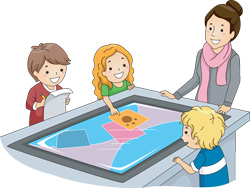
- I have two
bears.

- She drove to
the store yesterday.

Homographs
are words that are spelled the same, but have different
meanings (and are not always pronounced the same).
Example: row
(noun)
vs row (verb)
- Row (noun): The desks were lined up in a row.

- Row (verb): I will row
the boat to the shore.

Contronyms
A contronym (also spelled contranym) is a special type of homograph that can be its own antonym. Contronyms are also sometimes called auto-antonyms.
A contronym
has reverse meanings depending on the context. When you use
these words, make sure the context is clear, so the meaning is correct.
Let’s look at some
examples:
bolt
=> (verb) to secure / to flee
- meaning 1:
to secure
The man bolted the sink to the wall.
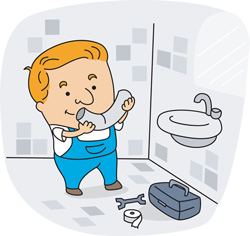
- meaning 2:
to flee
The boy saw the bats and bolted out of the cave.
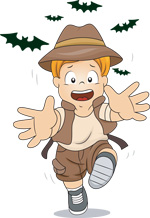
- meaning 1:
deactivated
Push the red button to turn the alarm off (deactivate it).
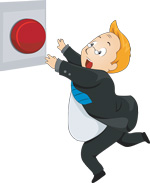
- meaning 2:
activated
The alarm went off at 6:40 a.m. (The alarm activated.)
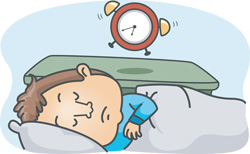
- meaning 1:
to purchase use of something
I am renting this apartment for one year. (I pay to live here.)

- meaning 2:
to sell use of something
I rent my cabin to tourists during the winter months. (Other people pay money to stay here.)
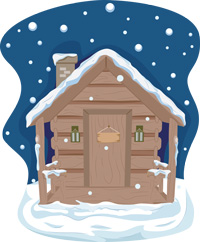
- meaning 1:
to hit
The orange car struck the green car. (The orange car hit the green car.)
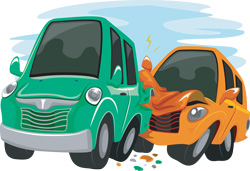
The earthquake struck the city. (There was an earthquake in the city.)
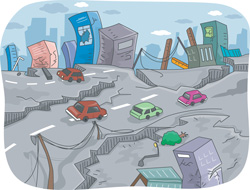
- meaning 2:
to miss an attempt to hit
A strike in baseball is when a batter swings and misses the ball. Then the umpire says, "Strike one!"
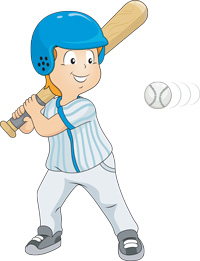
Here are some more English contronyms for you to study:
- backup
=> to retreat / to give support
- bill
=> a payment / an invoice for payment
- bound
=> fastened to a spot / heading to a new place
- buckle =>
to secure / to collapse
- clip
=> to fasten / to detach
- dust
=> to remove dust / to cover in dust
- fearful
=> causing fear / to be full of fear
- fix
=> to repair / to castrate
- garnish
=> to add to (as with food) / to take away (as with money)
- handicap
=> an advantage (as in sports) / a disadvantage
- lease
=> to lend / to borrow
- left
=> remaining / departed
- pitted
=> having pits / having pits removed
- seed
=> to add seeds / to remove seeds
- skin
=> to cover with skin / to remove skin
- trim
=> to decorate (as with a Christmas Tree) / to remove excess
- wear
=> to deteriorate or erode / to withstand or endure
- weather =>
to withstand / to wear away
- wicked
=> evil / very good (slang)

There are many more contronyms
in English, but these are some of the most common. If you are not sure
about the meaning of a word, you can always check a dictionary!
Get Updates, Special Offers, and English Resources
Download your FREE GIFT (the first two chapters of
English Short Stories Book and Workbook)
as soon as you join!

By submitting your email, you consent to receiving updates and newsletters from us and to the sharing of your personal data with third parties for the purposes of sending you communications. We will not spam you. You can unsubscribe at any time. For more information, please see our privacy policy.





